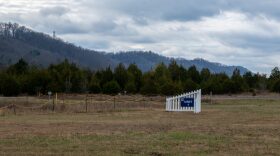
Caroline Eggers
Environmental Reporter, WPLNCaroline Eggers covers environmental issues with a focus on equity for WPLN News through Report for America, a national service program that supports journalists in local newsrooms across the country. Before joining the station, she spent several years covering water quality issues, biodiversity, climate change and Mammoth Cave National Park for newsrooms in the South. Her reporting on homelessness and a runoff-related “fish kill” for the Bowling Green Daily News earned her 2020 Kentucky Press Association awards in the general news and extended coverage categories, respectively. Beyond deadlines, she is frequently dancing, playing piano and photographing wildlife and her poodle, Princess. She graduated from Emory University with majors in journalism and creative writing.
-
In just four months, Tennessee experienced eight disasters that caused more than $1 billion in damage. Each event was considered a “severe storm,” defined as thunderstorms that produce tornadoes, damaging winds or large hail.
-
Hype is increasing around the future of nuclear — and the Tennessee Valley Authority is leaning into it. The utility now has three projects underway to bring nuclear plants online in Tennessee and potentially beyond by the 2030s.
-
Nuclear energy is usually the Tennessee Valley Authority’s largest source of electricity, but use plummeted this past year as outages plagued all seven reactors owned by the utility.
-
TVA tensions have culminated in a cancelled gas project, a threat to fire TVA’s new CEO, and speculations that President Donald Trump may privatize — or seize control of — the nation’s oldest and largest public utility.
-
Tennessee faces one of the highest potential job losses in the nation under proposed federal legislation. President Trump's tax bill could put thousands of jobs in the electric vehicle manufacturing sector at risk.
-
Analysts say part of President Donald Trump’s massive tax policy bill repealing most tax credits for clean energy will raise energy costs in Tennessee, threaten manufacturing jobs and increase planet-warming pollution.
-
The Tennessee Valley Authority is considering extending the life of its coal plants. Or, at least, that is what the utility is saying publicly.
-
Rural residents might stand to benefit more than their urban counterparts by switching to electric vehicles. A team at Tennessee Tech wants to make it easier for Appalachian residents to test drive and charge EVs.
-
Pesticide companies are among the wealthiest corporations in the world. Take Bayer: The chemical and pharmaceutical corporation made about half of its $50 billion revenue last year from pesticide and seed sales.
-
Tennessee lawmakers are considering a bill to remove protections for certain types of wetlands across the state to financially benefit developers.










